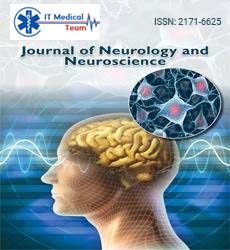Short Communication - (2023) Volume 14, Issue 1
Neurophysiology: Understanding the function of neurons and their interactions with the body
Bertil Shepherd*
Department of Neurobiology, Yale University, New Haven, USA
*Correspondence:
Bertil Shepherd, Department of Neurobiology, Yale University, New Haven,
USA,
Email:
Received: 31-Dec-2022, Manuscript No. ipjnn-23-13637;
Editor assigned: 03-Jan-2023, Pre QC No. P-13637;
Reviewed: 17-Jan-2023, QC No. Q-13637;
Revised: 23-Jan-2023, Manuscript No. R-13637;
Published:
31-Jan-2023
Introduction
Neurophysiology is a branch of biology that is
concerned with the study of the function of neurons and
their interactions with other cells in the body. Neurons are
the basic building blocks of the nervous system, and they
play a crucial role in transmitting information throughout
the body. Neurophysiologists seek to understand the
mechanisms that underlie the behavior of neurons,
including their electrical and chemical properties, as well
as their interactions with each other and with other cells in
the body. The study of neurophysiology has a wide range
of applications, including improving our understanding
of the relationship between the brain and behavior,
developing new treatments for neurological disorders, and
creating advanced artificial intelligence systems. Recent
technological advances have allowed for unprecedented
insights into the workings of the brain, with techniques
such as fMRI and optogenetics enabling researchers to
visualize and manipulate specific neurons in real-time. As a
result, neurophysiology is an exciting and rapidly-evolving
field that holds immense potential for further discoveries
and breakthroughs [1,2].
Description
Neurophysiology is a complex field that encompasses
many different areas of research. At its core, however, it
involves the study of neurons and their interactions with
other cells in the body. Neurons are specialized cells that
are responsible for transmitting information throughout
the body, and they communicate with each other using
electrical and chemical signals.
One important area of neurophysiology is the study
of action potentials, which are the electrical signals that
neurons use to transmit information. These signals are
generated when ions flow across the cell membrane of
a neuron, causing a change in the neuron's electrical
potential. Neurophysiologists study how these action
potentials are generated, how they are propagated along
neurons, and how they are translated into chemical signals
that can be used to communicate with other cells [3].
Another area of neurophysiology is the study of
synapses, which are the points where neurons come into
contact with each other or with other cells in the body.
Synapses play a crucial role in transmitting information
between neurons, and they can be either excitatory or
inhibitory, depending on the type of chemical signals that
they release.
Neurophysiology also encompasses the study of sensory
processing, which involves understanding how the brain
processes information from the senses. This can include
the study of vision, hearing, touch, taste, and smell, as well
as the integration of information from multiple sensory
modalities.
Finally, neurophysiology is involved in the study of
neurological disorders, such as epilepsy, Parkinson's disease,
and Alzheimer's disease. By understanding the mechanisms
that underlie these disorders, neurophysiologists hope to
develop new treatments and therapies that can improve the
lives of those affected.
In addition to the areas mentioned above,
neurophysiology also involves the study of neural networks,
which are complex systems of interconnected neurons that
can generate emergent properties such as memory and
learning. Neurophysiologists study how these networks
are formed, how they function, and how they can be
manipulated to achieve specific outcomes [4].
Furthermore, neurophysiology plays an important role
in the development of new technologies that can interface
with the nervous system. For example, researchers are
exploring the use of brain-computer interfaces (BCIs) that
can allow individuals with paralysis or other disabilities to
control prosthetic devices using their thoughts.
Finally, neurophysiology is closely linked to the study
of consciousness and the nature of subjective experience.
While the exact mechanisms that underlie consciousness
are still not fully understood, neurophysiologists are making progress in identifying the neural correlates of
different aspects of consciousness, such as self-awareness,
attention, and emotion.
Overall, the study of neurophysiology is a vast and
rapidly-evolving field that has the potential to revolutionize
our understanding of the brain and how it works. It is a
fascinating area of research that holds immense promise
for improving our understanding of neurological disorders,
enhancing human performance, and even unlocking the
mysteries of consciousness itself [5].
Conclusion
Neurophysiology is a vital branch of biology that is
dedicated to understanding the function of neurons and
their interactions with other cells in the body. Through the
use of various experimental techniques, neurophysiologists
seek to uncover the mechanisms that underlie the behavior
of neurons, including their electrical and chemical
properties. The study of neurophysiology has far-reaching
applications in fields such as medicine, artificial intelligence,
and neuroscience. By advancing our understanding of the
nervous system, neurophysiology holds the potential to
improve our lives in countless ways.
Acknowledgement
None.
Conflict of Interest
None.
References
- Grillner S. Biological pattern generation: The cellular and computational logic of networks in motion. Neuron. 2006; 52(5):751-766.
Google Scholar, Crossref, Indexed at
- Fields RD. White matter in learning, cognition and psychiatric disorders. Trends Neurosci. 2008; 31(7):361-370.
Google Scholar, Crossref, Indexed at
- Deisseroth K. Optogenetics: 10 years of microbial opsins in neuroscience. Nat Neurosci. 2015; 18(9):1213-1225.
Google Scholar, Crossref, Indexed at
- Hubel DH, Wiesel TN. Brain and visual perception: the story of a 25-year collaboration. OUP; 2004.
Google Scholar, Indexed at
- Rakic P. Evolution of the neocortex: A perspective from developmental biology. Nat Rev Neurosci 2009; 10(10):724-735.
Google Scholar, Crossref, Indexed at





